Grants and Funding for Transport in Canada for 2026
Explore trucking grants in Canada to grow your business and upgrade your fleet. Find funding for owner-operators, startups, and logistics companies.
Need funding to keep your transport projects moving? In 2026, the road to success starts here! From innovative mobility solutions to infrastructure upgrades, Canada’s grants and funding programs are paving the way for a smarter, greener, and more efficient future. Don’t get left in the dust—explore your opportunities today!
291 opportunities available

Loans and Capital investmentsOpen
DEL — Business Acquisition Loan
Développement économique de l'agglomération de Longueuil (DEL)Supports entrepreneurs acquiring businesses for succession and ownership transfer
Eligible Funding
- Maximum amount : 150,000 $
- Up to 25% of project cost
Eligible Industries
- Agriculture, forestry, fishing and hunting
- Mining, quarrying, and oil and gas extraction
- Utilities
- Construction
Types of eligible projects
Business Buyout

Grant and FundingClosed
Critical Minerals Infrastructure Fund – Indigenous Grants
Government of CanadaSupports Indigenous participation in critical minerals infrastructure projects
Eligible Funding
- Maximum amount : 200,000 $
- Up to 100% of project cost
Eligible Industries
- Mining, quarrying, and oil and gas extraction
- Utilities
- Transportation and warehousing
Types of eligible projects
Environment and ClimateHuman Resources

Grant and FundingOpen
innovÉÉ — SI2TEC
innovÉÉSupports innovative industrial projects for circular economy transition
Eligible Funding
- Maximum amount : 500,000 $
- Up to 50% of project cost
Eligible Industries
- Agriculture, forestry, fishing and hunting
- Utilities
- Manufacturing
- Transportation and warehousing
Types of eligible projects
TechnologyEnvironment and ClimateInnovation

Grant and FundingOpen
Roulez vert — Home charging station
Gouvernement du QuébecSupports electric vehicle and charging station acquisition in Québec
Eligible Funding
- From $600 to $600
Eligible Industries
- Transportation and warehousing
Types of eligible projects
Environment and Climate

Other SupportOpen
Developmental Licence Playbook
Innovation CanadaAccess wireless spectrum to test a business idea
Eligible Funding
- No Condition
Eligible Industries
- Manufacturing
- Transportation and warehousing
- Professional, scientific and technical services
- Health care and social assistance
Types of eligible projects

Loans and Capital investmentsOpen
MRC de Mékinac — Local Investment Fund (FLI) and Solidarity Fund (FLS)
MRC de MékinacLocal Funds support sustainable business development in Mékinac
Eligible Funding
- Maximum amount : 150,000 $
- Up to 50% of project cost
Eligible Industries
- Agriculture, forestry, fishing and hunting
- Manufacturing
- Transportation and warehousing
- Accommodation and food services
Types of eligible projects
CommercializationConstruction and Renovation

Grant and FundingClosed
Innovation program — Call for mobilizing projects on the development of tomorrow's transport technologies
Investissement Québec (IQ)Supports Quebec aerospace companies in innovative transport technology development
Eligible Funding
- From $4 to $10,000,000
- Up to 50% of project cost
Eligible Industries
- Transportation and warehousing
Types of eligible projects
TechnologyInnovation

Grant and FundingClosed
MRC Fjord-du-Saguenay — Entrepreneurship assistance and support fund (FASE)
MRC Fjord-du-SaguenayEntrepreneurship support fund fostering economic development
Eligible Funding
- From $15,000 to $75,000
- Up to 50% of project cost
Eligible Industries
- Agriculture, forestry, fishing and hunting
- Manufacturing
- Wholesale trade
- Retail trade
Types of eligible projects
InnovationDigital Transformation
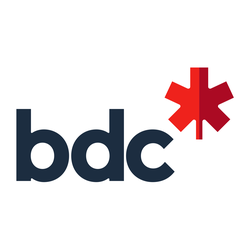
Loans and Capital investmentsOpen
BDC Financing — Equipment Purchase Loan
Business Development Bank of Canada (BDC)Flexible government financing for equipment and business modernization
Eligible Funding
- Up to 125% of project cost
Eligible Industries
- Manufacturing
- Transportation and warehousing
Types of eligible projects
Technology

Grant and FundingClosed
Mitis MRC — Regional and Rural Fund (RRF) - Component 1
La Mitis RCM (MRC)Supports regional development in agriculture, tourism, and transportation
Eligible Funding
- No Condition
Eligible Industries
- Agriculture, forestry, fishing and hunting
- Transportation and warehousing
- Educational services
- Health care and social assistance
Types of eligible projects
CommercializationEnvironment and ClimateBusiness Buyout

Grant and FundingClosed
Zero Emission Vehicle Awareness Initiative — Light-Duty Vehicle — Not-for-profit
Natural Resources Canada (NRCan)Funding to increase awareness for the reduction of vehicle emission
Eligible Funding
- Up to 50% of project cost
Eligible Industries
- Utilities
- Transportation and warehousing
- Educational services
- Other services (except public administration)
Types of eligible projects
TechnologyEnvironment and Climate

Other SupportOpen
Temporary Foreign Worker Program (TFW) — Positions in QC
Employment and Social Development Canada (ESDC)Skilled foreign workers for Quebec companies
Eligible Funding
- No Condition
Eligible Industries
- Agriculture, forestry, fishing and hunting
- Construction
- Manufacturing
- Retail trade
Types of eligible projects
Human Resources

Grant and FundingSuspended
RCM de la Mitis — Component 4 : Support for revitalization and intermunicipal cooperation
La Mitis RCM (MRC)Funding for municipal revitalization and intermunicipal cooperation projects
Eligible Funding
- No Condition
Eligible Industries
- Agriculture, forestry, fishing and hunting
- Transportation and warehousing
- Arts, entertainment and recreation
Types of eligible projects
Environment and ClimateInnovationDigital Transformation

Grant and FundingOpen
Transportez vert — Direct current fast charging station
Gouvernement du QuébecFinancial assistance for fast charging stations in Quebec
Eligible Funding
- Maximum amount : 150,000 $
- Up to 50% of project cost
Eligible Industries
- Transportation and warehousing
Types of eligible projects
TechnologyEnvironment and Climate
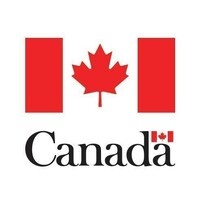
Grant and FundingClosed
Emissions Reduction Advancement Program (ERAP)
Environment and Climate Change Canada (ECCC)Supports industry-funded projects reducing greenhouse gas emissions in Canada
Eligible Funding
- No Condition
Eligible Industries
- Mining, quarrying, and oil and gas extraction
- Utilities
- Manufacturing
- Transportation and warehousing
Types of eligible projects
Environment and Climate

Grant and FundingArchived
Défi-Québec, Sustainable City
Quebec City (FLI)Support eco-friendly projects in Québec businesses
Eligible Funding
- Maximum amount : 50,000 $
Eligible Industries
- Manufacturing
- Transportation and warehousing
- Finance and insurance
- Arts, entertainment and recreation
Types of eligible projects
TechnologyConstruction and Renovation Innovation
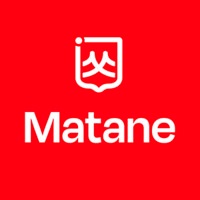
Grant and FundingOpen
Matane — Green Fund Program
City of MataneFinancial assistance for sustainable and environmentally friendly projects
Eligible Funding
- Maximum amount : 20,000 $
- Up to 90% of project cost
Eligible Industries
- Agriculture, forestry, fishing and hunting
- Construction
- Transportation and warehousing
- Administrative and support, waste management and remediation services
Types of eligible projects
Environment and Climate

Grant and FundingOpen
Energy Innovation Program – Advancing Canada’s clean energy future
Natural Resources Canada (NRCan)Supports innovative clean energy technology research and development
Eligible Funding
- No Condition
Eligible Industries
- Mining, quarrying, and oil and gas extraction
- Utilities
- Manufacturing
- Transportation and warehousing
Types of eligible projects
Artificial Intelligence (AI)TechnologyEnvironment and ClimateInnovation
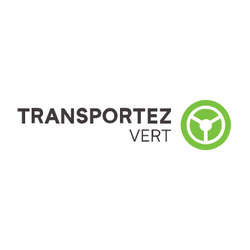
Grant and FundingClosed
Transportez vert — Coaching for energy management
Gouvernement du QuébecSupports expert energy management for vehicle fleet emissions reduction
Eligible Funding
- Maximum amount : 150,000 $
- Up to 50% of project cost
Eligible Industries
- Transportation and warehousing
Types of eligible projects
Environment and Climate

Other SupportPartnering and CollaborationExpert AdviceOpenClosing Soon
CFIN — Unpuzzling: Foodtech Ontario
Canadian Food Innovation Network (CFIN)Mentorship program accelerating early-stage foodtech companies in Ontario
Eligible Funding
- No Condition
Eligible Industries
- Manufacturing
- Wholesale trade
- Retail trade
- Transportation and warehousing
Types of eligible projects
CommercializationTechnologyEnvironment and ClimateInnovationDigital Transformation

Grant and FundingOpen
Saguenay Promotion — FRR – Business Support
Promotion SaguenaySupports business startup, acquisition, expansion, and succession projects
Eligible Funding
- Maximum amount : 20,000 $
- Up to 50% of project cost
Eligible Industries
- Agriculture, forestry, fishing and hunting
- Mining, quarrying, and oil and gas extraction
- Utilities
- Construction
Types of eligible projects
CommercializationTechnologyHuman ResourcesBusiness BuyoutInnovation

Loans and Capital investmentsOpen
SDE Thetford — Local Investment Fund (LIF)
Thetford Region Economic Development CorporationBusiness loans for startups, growth, and productivity in Thetford
Eligible Funding
- Maximum amount : 300,000 $
- Up to 50% of project cost
Eligible Industries
- Agriculture, forestry, fishing and hunting
- Mining, quarrying, and oil and gas extraction
- Utilities
- Construction
Types of eligible projects
Business BuyoutDigital Transformation

Grant and FundingClosed
Zero Emission Vehicle Awareness Initiative - Indigenous stream
Natural Resources Canada (NRCan)Funding for awareness projects of ZEVs, stations and clean fuels
Eligible Funding
- Maximum amount : 450,000 $
- Up to 75% of project cost
Eligible Industries
- Agriculture, forestry, fishing and hunting
- Utilities
- Manufacturing
- Transportation and warehousing
Types of eligible projects

Grant and FundingClosed
MRC Charlevoix-Est — Signature Innovation Fund
MRC Charlevoix-EstInnovation funding for sustainable tourism in Charlevoix-Est
Eligible Funding
- Maximum amount : 150,000 $
- Up to 50% of project cost
Eligible Industries
- Transportation and warehousing
- Arts, entertainment and recreation
- Accommodation and food services
- Other services (except public administration)
Types of eligible projects
Environment and ClimateConstruction and Renovation Innovation

Grant and FundingOpen
MRC de Rivière-du-Loup — FRR – Stream 3: Signature innovation - renewable energies
MRC Rivière-du-LoupSupports innovative renewable energy projects in Rivière-du-Loup
Eligible Funding
- Maximum amount : 150,000 $
- Up to 80% of project cost
Eligible Industries
- Utilities
- Manufacturing
- Transportation and warehousing
- Professional, scientific and technical services
Types of eligible projects
TechnologyEnvironment and ClimateInnovation
Discover how much grant funding is available for your business
Subsidize your projects with grants!
Use our free grant estimator to quickly identify the available grant amounts for which your company may be eligible.

Grant and FundingSuspended
Open Innovation Subsidy Program for start-up companies
City of Montreal (MTL)Supports Montréal start-ups testing innovative solutions with partner organizations
Eligible Funding
- Maximum amount : 50,000 $
- Up to 50% of project cost
Eligible Industries
- Transportation and warehousing
- Information and cultural industries
- Health care and social assistance
- Accommodation and food services
Types of eligible projects
CommercializationInnovation

Grant and FundingOpen
innovÉÉ — PSO
innovÉÉFunding for electric and smart transportation technology innovation
Eligible Funding
- Maximum amount : 500,000 $
- Up to 40% of project cost
Eligible Industries
- Utilities
- Transportation and warehousing
- Professional, scientific and technical services
Types of eligible projects
TechnologyInnovation
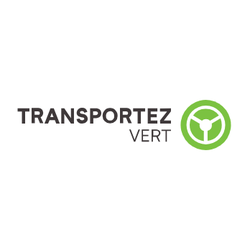
Grant and FundingOpen
Transportez vert — Eco-driving Training
Gouvernement du QuébecFinancial assistance to train drivers of light or heavy vehicules in eco-driving
Eligible Funding
- Maximum amount : 30,000 $
- Up to 50% of project cost
Eligible Industries
- Transportation and warehousing
Types of eligible projects
Environment and ClimateHuman Resources

Grant and FundingOpen
MRC de Vaudreuil-Soulanges — Fonds de développement des communautés (FDC)
MRC de Vaudreuil-SoulangesSupports community development projects improving quality of life
Eligible Funding
- Up to 70% of project cost
Eligible Industries
- Transportation and warehousing
- Educational services
- Health care and social assistance
Types of eligible projects
Environment and ClimateHuman ResourcesInnovation

Grant and FundingOpen
Energy Innovation Program — Clean Fuels Call for Proposals
Natural Resources Canada (NRCan)Advances clean fuel technologies for environmental sustainability
Eligible Funding
- From $500,000 to $10
- Up to 75% of project cost
Eligible Industries
- Utilities
- Transportation and warehousing
- Professional, scientific and technical services
- Other services (except public administration)
Types of eligible projects
TechnologyEnvironment and ClimateConstruction and Renovation Innovation

Grant and FundingOpen
Public transit development assistance program – Stream 2 : Financial assistance for regional public transit
Minister of Transport and Sustainable Mobility of QuebecSupports regional public transit services and technological integration
Eligible Funding
- Maximum amount : 100,000 $
- Up to 75% of project cost
Eligible Industries
- Transportation and warehousing
- Other services (except public administration)
- Public administration
Types of eligible projects
TechnologyEnvironment and Climate

Researchers And FacilitiesExpert AdviceOpen
NRC — Automotive and Surface Transportation
National Research Council Canada (NRC)Collaborate on automotive and surface transportation R&D
Eligible Funding
- No Condition
Eligible Industries
- Manufacturing
- Transportation and warehousing
- Professional, scientific and technical services
- Public administration
Types of eligible projects
TechnologyEnvironment and ClimateInnovation

Expert AdviceOpen
Hardware Catalyst Initiative
ventureLABHardware and semiconductor-focused products lab and incubator
Eligible Funding
- No Condition
Eligible Industries
- Manufacturing
- Transportation and warehousing
- Information and cultural industries
- Health care and social assistance
Types of eligible projects
CommercializationTechnologyHuman ResourcesInnovation

Tax CreditsOpen
British Columbia clean buildings tax credit
BC Ministry of FinanceTax credit for energy-efficient retrofits in commercial buildings
Eligible Funding
- Up to 5% of project cost
Eligible Industries
- Retail trade
- Transportation and warehousing
- Educational services
- Health care and social assistance
Types of eligible projects
Environment and Climate

Grant and FundingClosed
Youth Climate Action Fund
Halifax Climate Investment, Innovation and Impact Fund (HCi3)Empowering youth to innovate for climate change solutions
Eligible Funding
- From $1,400 to $7,000
Eligible Industries
- Utilities
- Construction
- Transportation and warehousing
- Professional, scientific and technical services
Types of eligible projects
Environment and ClimateInnovation

Researchers And FacilitiesExpert AdviceOpen
NRC — Large Area Basin - Research Facility
National Research Council Canada (NRC)Large area basin in Ottawa
Eligible Funding
- No Condition
Eligible Industries
- Construction
- Transportation and warehousing
- Professional, scientific and technical services
Types of eligible projects

Grant and FundingClosed
Entrepreneurial Assistance Program (PAEN)
Ministère de l'économie, de l'innovation et de l'énergie du Québec (MEIE)Supports entrepreneurship development and innovative business growth in Quebec
Eligible Funding
- No Condition
Eligible Industries
- Agriculture, forestry, fishing and hunting
- Mining, quarrying, and oil and gas extraction
- Utilities
- Construction
Types of eligible projects
Human ResourcesInnovation

Grant and FundingOpen
E-tools for Exporting
LearnSphereMoney to help Atlantic Canada businesses export
Eligible Funding
- From $5,000 to $15,000
- Up to 45% of project cost
Eligible Industries
- Agriculture, forestry, fishing and hunting
- Mining, quarrying, and oil and gas extraction
- Utilities
- Construction
Types of eligible projects
CommercializationDigital Transformation

Grant and FundingOpen
Disaster Financial Assistance Arrangements (DFAA)
Public Safety Canada (PSC)Provides federal financial assistance for large-scale natural disaster recovery
Eligible Funding
- Up to 90% of project cost
Eligible Industries
- Agriculture, forestry, fishing and hunting
- Utilities
- Construction
- Manufacturing
Types of eligible projects
Environment and Climate

Grant and FundingClosed
Efficient Trucking Program
Government of ManitobaRebates for trucking retrofits in Manitoba
Eligible Funding
- Up to 50% of project cost
Eligible Industries
- Transportation and warehousing
Types of eligible projects
Environment and Climate

Grant and FundingOpen
Public transit development assistance program – Stream 4 : Other financial assistance
Minister of Transport and Sustainable Mobility of QuebecSupports sustainable public transit initiatives and planning in Quebec
Eligible Funding
- Maximum amount : 200,000 $
- Up to 75% of project cost
Eligible Industries
- Transportation and warehousing
- Public administration
Types of eligible projects
Environment and Climate
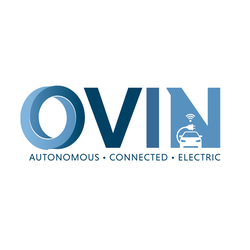
Grant and FundingClosed
OVIN — Content Partnerships Program
Ontario Vehicle Innovation Network (OVIN)The OVIN Content Partnerships Program funds Ontario-based institutions up to $50,000 to develop micro-credentials for the automotive and mobility workforce.
Eligible Funding
- Maximum amount : 100,000 $
Eligible Industries
- Manufacturing
- Transportation and warehousing
- Educational services
Types of eligible projects
Human Resources

Tax CreditsOpen
Tax credit for conversion of a ship
Revenu QuébecProvides a tax credit for eligible ship conversion projects
Eligible Funding
- No Condition
Eligible Industries
- Transportation and warehousing
Types of eligible projects
Environment and Climate

Tax CreditsOpen
British Columbia logging tax credit
BC Ministry of FinanceTax credit for income from logging operations in British Columbia
Eligible Funding
- Up to 10% of project cost
Eligible Industries
- Agriculture, forestry, fishing and hunting
- Manufacturing
- Transportation and warehousing
Types of eligible projects

Grant and FundingClosed
STIP — Local Road Bridge Program
Government of AlbertaFunds municipal local bridge projects for maintenance and improvement
Eligible Funding
- Up to 75% of project cost
Eligible Industries
- Transportation and warehousing
Types of eligible projects

Loans and Capital investmentsOpen
Pivot to Grow loan
Business Development Bank of Canada (BDC)Financing to support Canadian exporters impacted by U.S. tariffs
Eligible Funding
- From $350,000 to $2,000,000
- Up to 25% of project cost
Eligible Industries
- Manufacturing
- Wholesale trade
- Transportation and warehousing
Types of eligible projects
CommercializationBusiness BuyoutDigital Transformation

Grant and FundingArchived
Social economy support program (PSES) – Stream 2
Social Economy Cluster — Central QuebecSupports development of strategic sectors in Quebec’s social economy
Eligible Funding
- Maximum amount : 500,000 $
- Up to 70% of project cost
Eligible Industries
- Construction
- Manufacturing
- Retail trade
- Transportation and warehousing
Types of eligible projects
Environment and ClimateHuman ResourcesInnovation

Researchers And FacilitiesExpert AdviceOpen
NRC — Manufacturing and Automotive Innovation Hub
National Research Council Canada (NRC)Automotive manufacturing innovation space in London
Eligible Funding
- No Condition
Eligible Industries
- Manufacturing
- Transportation and warehousing
- Information and cultural industries
- Professional, scientific and technical services
Types of eligible projects
Innovation

Grant and FundingClosed
Energy Innovation Program — On-road Transportation Decarbonization
Natural Resources Canada (NRCan)Supports decarbonization research for on-road transportation technologies
Eligible Funding
- No Condition
Eligible Industries
- Manufacturing
- Transportation and warehousing
- Professional, scientific and technical services
Types of eligible projects
TechnologyEnvironment and ClimateInnovation

Grant and FundingWage Subsidies And InternsClosed
Regional Initiatives Fund (FAIR)
Ministère de l'économie, de l'innovation et de l'énergie du Québec (MEIE)Supports economic development and innovation in Gaspésie–Îles-de-la-Madeleine region
Eligible Funding
- Maximum amount : 150,000 $
- Up to 90% of project cost
Eligible Industries
- Agriculture, forestry, fishing and hunting
- Utilities
- Construction
- Manufacturing
Types of eligible projects
CommercializationTechnologyEnvironment and ClimateHuman ResourcesInnovation
Access over 10 000 different funding opportunities
Try the helloDarwin platform today and find programs that fit your needs
The helloDarwin application makes it easy to unlock grants so your business can grow faster—with less hassle and more impact.

Researchers And FacilitiesExpert AdviceOpen
NRC — Structural Full-scale Aerospace - Testing Facilities
National Research Council Canada (NRC)Structural full-scale testing facility in Ottawa
Eligible Funding
- No Condition
Eligible Industries
- Manufacturing
- Transportation and warehousing
- Professional, scientific and technical services
- Public administration
Types of eligible projects
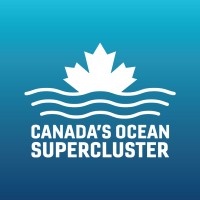
Grant and FundingOpen
Canada's Ocean Supercluster — Technology Leadership Project Program
Canada's Ocean Supercluster (OSC)Ocean Supercluster supports innovative ocean economy projects in Canada
Eligible Funding
- Minimum amount : 400,000 $
- Up to 40% of project cost
Eligible Industries
- Utilities
- Transportation and warehousing
- Professional, scientific and technical services
Types of eligible projects
CommercializationTechnologyEnvironment and ClimateInnovation

Grant and FundingClosed
Off-Road Vehicle Financial Assistance Program - Wildlife and Habitat Protection Stream
Quebec Wildlife FoundationSupports projects mitigating off-road vehicle impact on wildlife habitats
Eligible Funding
- Maximum amount : 500,000 $
- Up to 75% of project cost
Eligible Industries
- Agriculture, forestry, fishing and hunting
- Transportation and warehousing
- Educational services
- Arts, entertainment and recreation
Types of eligible projects
Environment and Climate

Grant and FundingClosed
Post-Farm Food Safety Program
Government of British ColumbiaCost-sharing program for enhancing BC food safety practices
Eligible Funding
- Maximum amount : 20,000 $
- Up to 70% of project cost
Eligible Industries
- Manufacturing
- Transportation and warehousing
Types of eligible projects
Environment and Climate
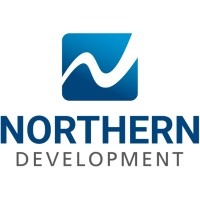
Grant and FundingOpen
Northern Industries Innovation Fund
Northern Development Initiative Trust (NDIT)Innovation funding for certain northern British Columbia SMEs
Eligible Funding
- From $10 to $50,000
- Up to 50% of project cost
Eligible Industries
- Agriculture, forestry, fishing and hunting
- Mining, quarrying, and oil and gas extraction
- Manufacturing
- Transportation and warehousing
Types of eligible projects
TechnologyInnovation

Grant and FundingClosed
Economic Diversification Fund (FDE) for the MRC des Sources territory
Ministère de l'économie, de l'innovation et de l'énergie du Québec (MEIE)Supports economic diversification and business development in MRC des Sources
Eligible Funding
- No Condition
Eligible Industries
- Construction
- Manufacturing
- Wholesale trade
- Retail trade
Types of eligible projects
Human ResourcesInnovation

Other SupportExpert AdviceOpen
Sector Council Program
Government of ManitobaFunding for workforce training in Manitoba
Eligible Funding
- No Condition
Eligible Industries
- Construction
- Manufacturing
- Retail trade
- Transportation and warehousing
Types of eligible projects
Human Resources

Grant and FundingClosed
Transportation Assets Risk Assessment (TARA) Program
Transport Canada (TC)Funding to assess climate risks to federal transportation assets
Eligible Funding
- Maximum amount : 50,000 $
Eligible Industries
- Transportation and warehousing
Types of eligible projects
Environment and Climate

Grant and FundingClosed
CICE 2023 Directed Call for Innovation — Measurement, Monitoring and Verification (MMV) of Carbon Management
Government of British ColumbiaFunding for BC-based innovators
Eligible Funding
- No Condition
Eligible Industries
- Agriculture, forestry, fishing and hunting
- Utilities
- Manufacturing
- Transportation and warehousing
Types of eligible projects
Innovation

Grant and FundingOpen
Enbridge Gas Quebec — Cash incentives – Air Curtain
Enbridge Gas QuebecIncentives for installing air curtain systems in gas-heated buildings
Eligible Funding
- From $400 to $10,500
Eligible Industries
- Manufacturing
- Wholesale trade
- Transportation and warehousing
Types of eligible projects
TechnologyEnvironment and Climate

Wage Subsidies And InternsOpen
OVIN — TalentEdge Fellowship
Ontario Vehicle Innovation Network (OVIN)Fellowship for automotive and smart mobility technology
Eligible Funding
- No Condition
Eligible Industries
- Manufacturing
- Transportation and warehousing
- Professional, scientific and technical services
Types of eligible projects
Technology

Grant and FundingClosed
Ascension competition
Quebec City Junior Chamber of Commerce (JCCQ)Pitch competition supporting early-stage entrepreneurs in Quebec City
Eligible Funding
- Maximum amount : 60,000 $
Eligible Industries
- Construction
- Manufacturing
- Retail trade
- Transportation and warehousing
Types of eligible projects
CommercializationInnovation

Grant and FundingClosed
STIP — Local Municipal Initiatives
Government of AlbertaFunding for local priority transportation infrastructure projects in Alberta
Eligible Funding
- No Condition
Eligible Industries
- Transportation and warehousing
Types of eligible projects

Grant and Fundingnull
Employee Training Program
Minister of Industry, Tourism and Investment (NWT)Funding for employers to train and upskill Northwest Territories employees
Eligible Funding
- Maximum amount : 13,000 $
Eligible Industries
- Agriculture, forestry, fishing and hunting
- Mining, quarrying, and oil and gas extraction
- Utilities
- Construction
Types of eligible projects
Human Resources

Grant and FundingClosed
Zero-Emission Trucking Program - Call for Proposals
Transport Canada (TC)Zero-Emission Trucking Program funds eco-friendly transportation initiatives
Eligible Funding
- Maximum amount : 1,000,000 $
- Up to 75% of project cost
Eligible Industries
- Transportation and warehousing
Types of eligible projects
TechnologyEnvironment and ClimateConstruction and Renovation Innovation

Researchers And FacilitiesExpert AdviceOpen
NRC — Wind tunnel testing facility
National Research Council Canada (NRC)Aerodynamics testing in Ottawa for vehicles, structures & aerospace models
Eligible Funding
- No Condition
Eligible Industries
- Manufacturing
- Transportation and warehousing
- Professional, scientific and technical services
Types of eligible projects
TechnologyEnvironment and ClimateInnovation

Researchers And FacilitiesExpert AdviceOpen
NRC — Heavy structural dynamics lab research facility
National Research Council Canada (NRC)Vibration and shock testing facility for vehicles in Ottawa
Eligible Funding
- No Condition
Eligible Industries
- Manufacturing
- Transportation and warehousing
Types of eligible projects

Wage Subsidies And InternsOpen
OVIN — TalentEdge Internship
Ontario Vehicle Innovation Network (OVIN)Interns for automotive and smart mobility technology
Eligible Funding
- No Condition
Eligible Industries
- Manufacturing
- Transportation and warehousing
- Information and cultural industries
- Professional, scientific and technical services
Types of eligible projects
Artificial Intelligence (AI)TechnologyInnovation

Grant and FundingClosed
NGen — Electric Vehicle Manufacturing Value Chain Program (EVMP)
Next Generation Manufacturing Canada (NGen)Support to create a vertically integrated electric vehicle (EV) value chain
Eligible Funding
- Up to 35% of project cost
Eligible Industries
- Mining, quarrying, and oil and gas extraction
- Manufacturing
- Transportation and warehousing
Types of eligible projects
TechnologyEnvironment and Climate
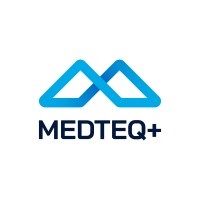
Grant and FundingClosed
MEDTEQ+ — PARTENAR-IA — Academic
Consortium de recherche et d’innovation en technologies médicales du QuébecFunding for Quebec R&D collaborations in AI for health technologies
Eligible Funding
- Maximum amount : 1,500,000 $
- Up to 35% of project cost
Eligible Industries
- Transportation and warehousing
- Health care and social assistance
Types of eligible projects
Artificial Intelligence (AI)Construction and Renovation

Grant and FundingClosed
EV ChargeON Program
Government of OntarioFunding to support the installation of public electric vehicle (EV) charging stations in Ontario communities outside of large urban centres.
Eligible Funding
- Maximum amount : 1,000,000 $
- Up to 75% of project cost
Eligible Industries
- Utilities
- Transportation and warehousing
- Public administration
Types of eligible projects
TechnologyEnvironment and Climate

Partnering and CollaborationGrant and FundingExpert AdviceClosed
Breakthrough Energy Solutions Canada
Natural Resources Canada (NRCan)Accelerating Canadian clean energy technology innovation and commercialization
Eligible Funding
- No Condition
Eligible Industries
- Utilities
- Construction
- Manufacturing
- Transportation and warehousing
Types of eligible projects
CommercializationTechnologyEnvironment and ClimateHuman ResourcesInnovation
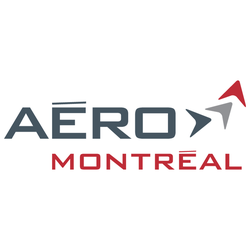
Expert AdviceOpen
Aero Montreal — StartAéro 360°
Aéro MontrealCommercialization help for Quebec aerospace SMEs
Eligible Funding
- No Condition
Eligible Industries
- Manufacturing
- Transportation and warehousing
- Professional, scientific and technical services
Types of eligible projects
CommercializationTechnologyInnovation

Grant and FundingOpen
School bus electrification program – Stream 1 : Financial assistance for the purchase of an electric school bus
Gouvernement du QuébecFinancial support for purchasing new electric school buses in Quebec
Eligible Funding
- From $240,000 to $240,000
- Up to 65% of project cost
Eligible Industries
- Transportation and warehousing
- Educational services
Types of eligible projects
TechnologyEnvironment and Climate

Grant and FundingOpen
Small Business Recovery (SBR) Consulting Rebate
Northern Development Initiative Trust (NDIT)Consulting cost rebate supporting small and medium business recovery
Eligible Funding
- Maximum amount : 30,000 $
- Up to 85% of project cost
Eligible Industries
- Agriculture, forestry, fishing and hunting
- Mining, quarrying, and oil and gas extraction
- Manufacturing
- Retail trade
Types of eligible projects
CommercializationHuman ResourcesDigital Transformation
Find tailored funding for your business
Discover more grants on the helloDarwin platform
Look through over 4,000 grants, tax credits, loans and more financial aid on the helloDarwin application.

Grant and FundingOpen
New Construction Commercial and Industrial Energy Efficiency Program
NB PowerSupports energy-efficient commercial and industrial new building projects
Eligible Funding
- Maximum amount : 250,000 $
- Up to 25% of project cost
Eligible Industries
- Agriculture, forestry, fishing and hunting
- Construction
- Manufacturing
- Wholesale trade
Types of eligible projects
Environment and Climate

Grant and FundingOpen
OVIN — C/AV and Smart Mobility — Stream 1
Ontario Vehicle Innovation Network (OVIN)Funding for autonomous vehicles and smart mobility technologies
Eligible Funding
- Maximum amount : 100,000 $
- Up to 50% of project cost
Eligible Industries
- Transportation and warehousing
Types of eligible projects
CommercializationTechnologyEnvironment and Climate

Researchers And FacilitiesExpert AdviceOpen
NRC — Reverberant Acoustic Chamber - Research Facility
National Research Council Canada (NRC)High intensity noise testing facility in Ottawa
Eligible Funding
- No Condition
Eligible Industries
- Transportation and warehousing
- Professional, scientific and technical services
- Public administration
Types of eligible projects
TechnologyInnovation

Grant and FundingOpen
CleanBC — Go Electric Other Rebates
CleanBCRebates encouraging adoption of zero‑emission specialty-use vehicles in BC
Eligible Funding
- Maximum amount : 100,000 $
- Up to 75% of project cost
Eligible Industries
- Transportation and warehousing
- Other services (except public administration)
- Public administration
Types of eligible projects
Environment and Climate

Expert AdviceOpen
Innovation Canada — Innovation Advisors in Yukon
Innovation CanadaPersonalized advisory services for innovators in Yukon
Eligible Funding
- No Condition
Eligible Industries
- Agriculture, forestry, fishing and hunting
- Utilities
- Manufacturing
- Retail trade
Types of eligible projects
CommercializationInnovationDigital Transformation

Expert AdviceOpen
CCC — U.S. DoD Prime Contractor
Canadian Commercial Corporation (CCC)Assistance for Canadian companies to access the U.S. Department of Defense (US DoD)
Eligible Funding
- No Condition
Eligible Industries
- Construction
- Manufacturing
- Transportation and warehousing
- Administrative and support, waste management and remediation services
Types of eligible projects
CommercializationTechnology
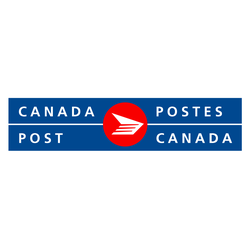
Other SupportOpen
Solutions for Small Business — Shipping Discounts
Canada PostVolume-based shipping discounts
Eligible Funding
- No Condition
Eligible Industries
- Retail trade
- Transportation and warehousing
Types of eligible projects

Grant and FundingClosed
PRIMA — Call For Projects In Artificial Intelligence And Quantum Technologies
Advanced Materials Research and Innovation Hub (PRIMA)Funding for AI and quantum technology innovation projects
Eligible Funding
- Maximum amount : 1,500,000 $
- Up to 35% of project cost
Eligible Industries
- Agriculture, forestry, fishing and hunting
- Manufacturing
- Transportation and warehousing
- Information and cultural industries
Types of eligible projects
Artificial Intelligence (AI)TechnologyInnovation

Researchers And FacilitiesExpert AdviceOpen
NRC — Wheel bearing and brake testing facility
National Research Council Canada (NRC)Wheel bearing and brake facility testing in Ottawa
Eligible Funding
- No Condition
Eligible Industries
- Transportation and warehousing
Types of eligible projects

Researchers And FacilitiesExpert AdviceOpen
NRC — Nanotubes production research facility
National Research Council Canada (NRC)Nanotube facility in Ottawa
Eligible Funding
- No Condition
Eligible Industries
- Manufacturing
- Transportation and warehousing
- Information and cultural industries
- Professional, scientific and technical services
Types of eligible projects

Grant and FundingClosed
OVIN — R&D Partnership Fund – Advanced Charging and Vehicle-to-Grid (V2G) Stream
Ontario Vehicle Innovation Network (OVIN)Supports R&D collaborations for advanced EV charging and V2G technologies
Eligible Funding
- Maximum amount : 1,000,000 $
- Up to 33% of project cost
Eligible Industries
- Manufacturing
- Transportation and warehousing
- Information and cultural industries
- Professional, scientific and technical services
Types of eligible projects
CommercializationTechnologyEnvironment and ClimateInnovation

Grant and FundingOpen
Site Readiness Program
Government of OntarioFunding assistance for industrial site preparation in Ontario
Eligible Funding
- Maximum amount : 25,000 $
- Up to 50% of project cost
Eligible Industries
- Manufacturing
- Transportation and warehousing
- Professional, scientific and technical services
- Administrative and support, waste management and remediation services
Types of eligible projects
Environment and Climate

Grant and FundingClosed
Canada-Saskatchewan Job Grant (CSJG)
Government of SaskatchewanSupports employer-led training for new and existing employees
Eligible Funding
- From $1,000 to $10,000
- Up to 66% of project cost
Eligible Industries
- Manufacturing
- Transportation and warehousing
- Finance and insurance
- Professional, scientific and technical services
Types of eligible projects
Human Resources

Other SupportOpen
CCC — International Prime Contractor
Canadian Commercial Corporation (CCC)Help Canadian businesses win more government business abroad
Eligible Funding
- No Condition
Eligible Industries
- Agriculture, forestry, fishing and hunting
- Construction
- Manufacturing
- Transportation and warehousing
Types of eligible projects
TechnologyEnvironment and ClimateConstruction and Renovation Innovation

Grant and FundingArchived
Financial assistance for the electrification of intercity and private transportation (Écobus)
Gouvernement du QuébecSupports electrification of private and intercity transportation
Eligible Funding
- Maximum amount : 100,000 $
- Up to 30% of project cost
Eligible Industries
- Transportation and warehousing
Types of eligible projects
Environment and Climate

Grant and FundingClosed
New Mobility Assistance Program (NOMO) – Stream 2
Minister of Transport and Sustainable Mobility of QuebecSupports sustainable, connected mobility and workplace travel management initiatives
Eligible Funding
- Maximum amount : 75,000 $
- Up to 75% of project cost
Eligible Industries
- Transportation and warehousing
- Educational services
- Health care and social assistance
- Other services (except public administration)
Types of eligible projects
TechnologyEnvironment and ClimateConstruction and Renovation
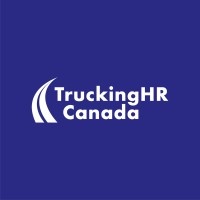
Wage Subsidies And InternsClosed
Trucking HR Canada – Student Work Placement Subsidy
Trucking HR CanadaWage subsidies to employers for hiring post-secondary students
Eligible Funding
- Maximum amount : 7,000 $
- Up to 70% of project cost
Eligible Industries
- Transportation and warehousing
Types of eligible projects
Human Resources

Grant and FundingOpen
Community Participation Funding Program (CPFP)
Transport Canada (TC)Supports Indigenous engagement in marine transportation development
Eligible Funding
- Maximum amount : 5,000 $
Eligible Industries
- Transportation and warehousing
Types of eligible projects
Environment and Climate

Researchers And FacilitiesExpert AdviceOpen
NRC — Climatic testing facility
National Research Council Canada (NRC)Testing in varied weather conditions in Ottawa
Eligible Funding
- No Condition
Eligible Industries
- Manufacturing
- Transportation and warehousing
- Professional, scientific and technical services
- Public administration
Types of eligible projects
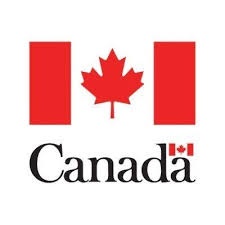
Grant and FundingOpen
Rural Transit Solutions Fund — Capital Projects
Government of CanadaMoney for transit solutions in rural and remote communities
Eligible Funding
- Maximum amount : 5,000,000 $
- Up to 100% of project cost
Eligible Industries
- Transportation and warehousing
- Public administration
Types of eligible projects
Technology

Grant and FundingClosed
Reshaping Energy Systems
Emissions Reduction Alberta (ERA)Money to strengthen energy systems in Alberta
Eligible Funding
- Minimum amount : 250,000 $
- Up to 50% of project cost
Eligible Industries
- Utilities
- Manufacturing
- Transportation and warehousing
- Professional, scientific and technical services
Types of eligible projects
Artificial Intelligence (AI)TechnologyEnvironment and ClimateInnovation

Researchers And FacilitiesExpert AdviceOpen
NRC — Laser processing and surface modification facility
National Research Council Canada (NRC)Laser processing and surface modification facility in London
Eligible Funding
- No Condition
Eligible Industries
- Manufacturing
- Transportation and warehousing
- Professional, scientific and technical services
Types of eligible projects

Grant and FundingClosed
Search and Rescue New Initiatives Fund
Public Safety Canada (PSC)Funding for search and rescue initiatives
Eligible Funding
- Up to 95% of project cost
Eligible Industries
- Transportation and warehousing
- Educational services
- Health care and social assistance
- Arts, entertainment and recreation
Types of eligible projects
TechnologyHuman Resources

Researchers And FacilitiesExpert AdviceOpen
NRC — Aluminium Technology Centre
National Research Council Canada (NRC)Aluminium transformation testing facility in Saguenay, Quebec
Eligible Funding
- No Condition
Eligible Industries
- Manufacturing
- Transportation and warehousing
- Professional, scientific and technical services
Types of eligible projects
TechnologyEnvironment and Climate

Grant and FundingSuspended
CleanBC — Commercial Express Program
CleanBCSupports commercial building owners to reduce greenhouse gas emissions
Eligible Funding
- Maximum amount : 125,000 $
Eligible Industries
- Retail trade
- Transportation and warehousing
- Real estate and rental and leasing
- Educational services
Types of eligible projects
Environment and Climate
Explore related grant directories
By Industry
Transport Grants and Funding in Manitoba
Transport Grants and Funding in Ontario
Transport Grants and Funding in Saskatchewan
Transport Grants and Funding in the Canadian Prairies